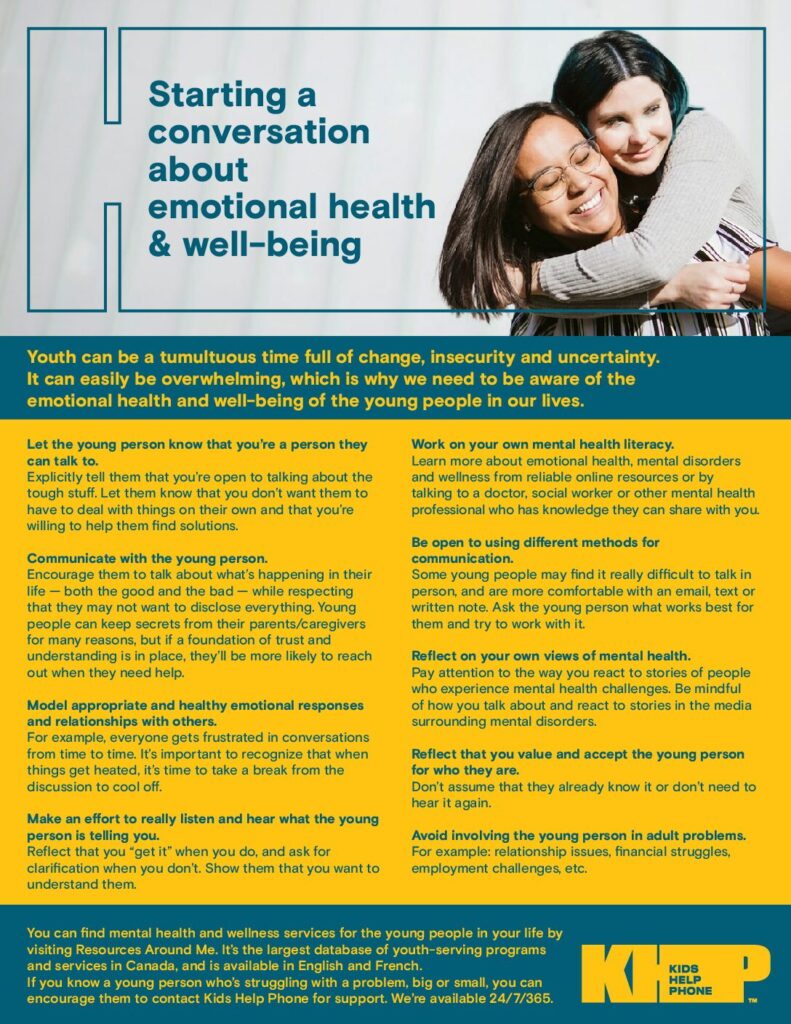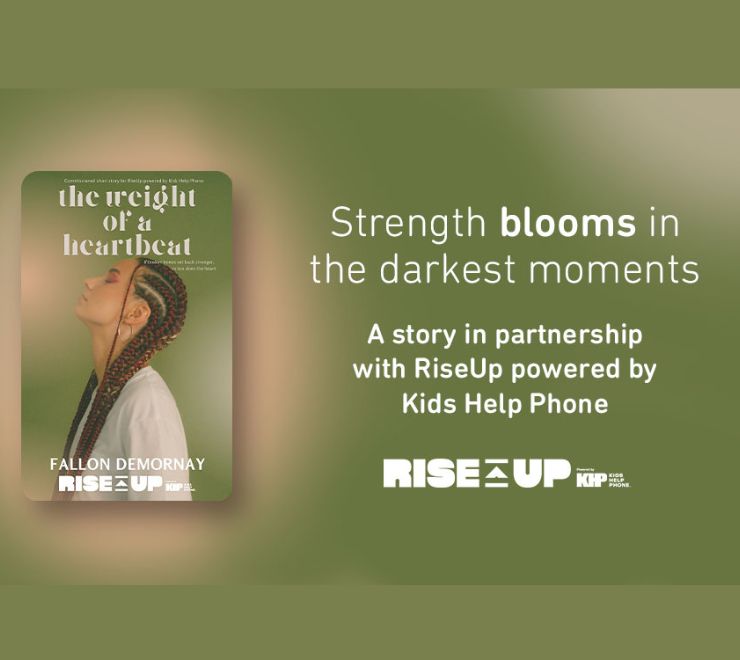Kids Help Phone shares tips for caring adults and talking to young people about emotional health and well-being.
Download “Starting a conversation about emotional health & well-being”

Starting a conversation about emotional health & well-being
Youth can be a tumultuous time full of change, insecurity and uncertainty. It can easily be overwhelming, which is why we need to be aware of the emotional health and well-being of the young people in our lives.
Things you can do starting now
- Reflect that you value and accept the young person for who they are. Don’t assume that they already know it or don’t need to hear it again.
- Communicate with the young person. Encourage them to talk about what’s happening in their life — both the good and the bad — while respecting that they may not want to disclose everything. Young people can keep secrets from their parents/caregivers for many reasons, but if a foundation of trust and understanding is in place, they’ll be more likely to reach out when they need help.
- Make an effort to really listen and hear what the young person is telling you. Reflect that you “get it” when you do, and ask for clarification when you don’t. Show them that you want to understand them.
- Let the young person know that you’re a person they can talk to. Explicitly tell them that you’re open to talking about the tough stuff. Let them know that you don’t want them to have to deal with things on their own and that you’re willing to help them find solutions.
- Model appropriate and healthy emotional responses and relationships with others. For example, everyone gets frustrated in conversations from time to time. It’s important to recognize that when things get heated, it’s time to take a break from the discussion to cool off.
- Be open to using different methods for communication. Some young people may find it really difficult to talk in person, and are more comfortable with an email, text or written note. Ask the young person what works best for them and try to work with it.
- Avoid involving the young person in adult problems. For example: relationship issues, financial struggles, employment challenges, etc.
- Work on your own mental health literacy. Learn more about emotional health, mental disorders and wellness from reliable online resources or by talking to a doctor, social worker or other mental health professional who has knowledge they can share with you.
- Reflect on your own views of mental health. Pay attention to the way you react to stories of people who experience mental health challenges. Be mindful of how you talk about and react to stories in the media surrounding mental disorders.
You can find mental health and wellness services for the young people in your life by visiting Resources Around Me. It’s the largest database of youth-serving programs and services in Canada, and is available in English and French.
Help is out there
If you know a young person who’s struggling with a problem, big or small, you can encourage them to contact Kids Help Phone for support. We’re available 24/7/365.
Brought to you with the support of:
















